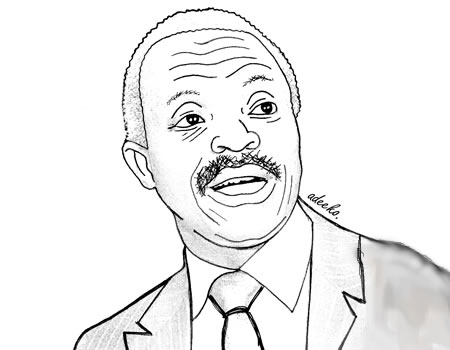While targeting increased job rate, Osinbajo was optimistic that 37 million more people can be employed in addition to the existing 59 million already working in the sector. It is thus clear that MSMEs can catalyse industrial growth and ultimately increase significantly the nation’s Gross Domestic Product (GDP) growth rate Emerging realities indicate that in most developed countries like USA, Japan and now India the MSMEs have sharply become new drivers of economic growth and national prosperity. For instance, in the United States, SMEs account for 99.9 per cent of the 27 million non-farm businesses surveyed in 2006, while in Japan, SMEs are more than 90 per cent of total business. Nigeria and India have different figures as per economic impact viz-a-viz the MSME sector. In India, SMEs contribute 40 per cent of total export and employs 42 million out of 1 billion population, while in Nigeria, there are 37.07 million MSMEs, employing 59.7 million people with a contribution of 48.7 per cent to the nation’s GDP; in a country of over 180 million people.
ALSO READ: Call Onochie to order, CAN tells Buhari
In Nigeria’s case, the major vehicle for growing the MSMEs under the Buhari-led APC government is the national MSME clinics. The impact of this is not unknown to Vice President Osinbajo who noted at the recent launch of the scheme in Akure, Ondo State, that “the MSME clinics were conceived to bring government closer to the people by assembling in one place all the regulatory agencies whose work affect the business experience of small and medium scale businesses.” Similarly, the clinics are strategically positioned to address the plethora of challenges faced by the millions of entrepreneurs who eke out a living with these small businesses across the country. Aside from the problem of finance, most of MSMEs face other obstacles such as technological challenge, low human resource capabilities, power problem and lack of easy access to regulatory agencies. So, the clinics afford these enterprises “an efficient platform to meet with the right agencies that can address their challenges.” In short, it allows them, gain access to all the agencies in one place saving entrepreneurs the travel time and cost of seeking out different agencies.
Encouraged by the result coming out from the clinics already held in 15 States so far, namely, Abia, Kwara, Sokoto, Plateau, Cross-River, Akwa-Ibom, FCT, Ogun, Osun, Katsina, Kogi, Anambra, Eboyin, Ondo and Kano; 14 other States are to host before the end of the Year. On record, 392, 405 entrepreneurs have participated so far in 15 Clinics, just as participating agencies such as Bank of Industry, Standard Organisation of Nigeria, Corporate Affairs Commission, NAFDAC, SMEDAN et al have shown encouraging results. For instance, CAC registers SME businesses less than the regular amount during clinics; NAFDAC also registers SMEs at discounted rates, ditto SON which charges 50 per cent fees for registration; and BOI has given out loans to qualified SMEs to the tune of 10 million without collateral, but with one or two Guarantors depending on the amount of loan involved. One immediate gain of the clinics however, has been the establishment of one-stop Shop for SMEs designed to help consolidate on the immediate gains of the clinic. Presently in 5 States, the Shop is to ensure continuity as well as help reduce issues of capital to purchase equipment, benefits of shared facilities which attract a token by the entrepreneurs who elect to use these facilities.
The agencies housed in the One-Stop Shop include the Bank of Industry (BOI), Bank of Agriculture (BOA), CAC, FIRS, SON, NAFDAC, Industrial Training Fund (ITF), Nigerian Export-Import Bank (NEXIM), Nigerian Export Promotion Council (NEPC), and Small & Medium Enterprises Development Agency of Nigeria (SMEDAN). Aside from the Central Bank of Nigeria which has been supportive of the Federal Government’s efforts to grow the MSMEs, banks and other financial institutions must show demonstrable commitment proactively through adopting single digit interest rates as availability of credit or soft loans can greatly empower many of the MSMEs to grow their businesses. More importantly, we need banks to tap into the Central Bank of Nigeria (CBN) fund for MSMEs which many of the commercial banks don’t tap into because of the lower interest rates
The Buhari administration therefore needs the cooperation of all stakeholders in its bid to reposition the MSMEs to deliver the right growth rates for our economic development.
- Abiola, a public affairs analyst, is based in Abuja
WATCH TOP VIDEOS FROM NIGERIAN TRIBUNE TV
- Let’s Talk About SELF-AWARENESS
- Is Your Confidence Mistaken for Pride? Let’s talk about it
- Is Etiquette About Perfection…Or Just Not Being Rude?
- Top Psychologist Reveal 3 Signs You’re Struggling With Imposter Syndrome
- Do You Pick Up Work-Related Calls at Midnight or Never? Let’s Talk About Boundaries






